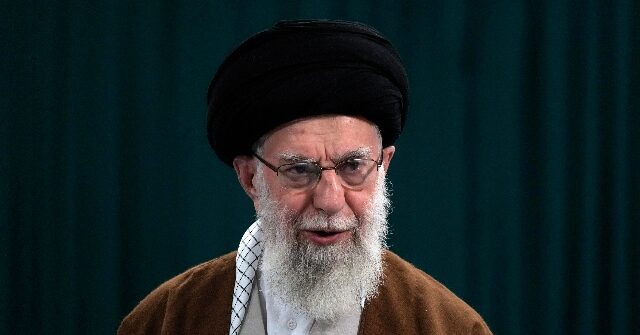Recent developments have put a spotlight on the dire situation of American citizen Reza Valizadeh, who has been confirmed as a kidnapping victim of the Iranian regime, according to the U.S. State Department. Valizadeh, who held dual American-Iranian citizenship and previously worked as a reporter for Radio Farda, was reported missing in September by family members, though the Iranian authorities remain silent regarding his detention. This alarming incident coincides with the 45th anniversary of the Iranian siege of the American embassy in Tehran, a pivotal event linked to the rise of the current Iranian regime. The atmosphere has further escalated, with Iranian officials ramping up their aggressive rhetoric against the U.S. and Israel as tensions mount in the region, particularly concerning the activities of terrorist proxies like Hamas and Hezbollah.
Despite President Joe Biden’s administration advocating for a diplomatic approach towards Iran, including the lifting of billions in frozen assets back to the regime, the situation has not improved. Critics have pointed out that this financial relief has inadvertently funded terrorist factions and furthered Iran’s nuclear ambitions. While the Biden administration attempted to revive the Joint Comprehensive Plan of Action (JCPOA)—the 2015 nuclear agreement—the deal has stalled, marked by Iran’s blatant non-compliance in the eyes of the International Atomic Energy Agency (IAEA). The recent statements from Iranian officials signal a troubling pivot towards potentially approving the development of nuclear weapons under a military doctrine shift, which could have profound ramifications for regional and global stability.
The disappearance of Valizadeh is emblematic of a broader pattern of human rights abuses perpetrated by the Iranian regime, which regularly detains foreign nationals, especially Americans, under dubious charges. The State Department has labeled Iran’s practice of imprisoning individuals for political leverage as cruel and against international law. Valizadeh’s situation is particularly concerning given his strange pre-disappearance social media activity, which hinted at possible negotiations with the Islamic Revolutionary Guard Corps (IRGC), but lacking clarity. His case highlights the risks faced by dissidents and journalists within a regime known for its harsh treatment of dissenters and critics.
Valizadeh’s case follows a contentious $6 billion deal brokered by the Biden administration, in which Iran released five imprisoned Americans, igniting debates about the ethics of potentially paying ransom to a state sponsor of terrorism. In the backdrop of this exchange, Israel faced a devastating assault from Hamas, which has ties to Iranian support. The timing raises serious questions about the impact of perceived concessions from the U.S. on Iranian military and paramilitary actions. Additionally, Iranian state-sponsored terrorism is not only a threat to Israel but also poses risks to the U.S. and its allies, with Iran reportedly investing heavily in militant groups like Hamas, further complicating the geopolitical landscape.
The execution of Jamshid Sharmahd, an Iranian-American with dual citizenship, has heightened concerns regarding the Iranian regime’s aggression towards dissenters and the apparent failure of Western governments to protect their nationals abroad. Sharmahd had been sentenced to death under accusations of involvement in terrorist activities, allegations that were met with skepticism by human rights advocates and government officials from the U.S. and Germany. His daughter, Gazelle Sharmahd, publicly criticized the Biden administration and condemned the $6 billion deal as a betrayal that empowered the Iranian regime to execute individuals like her father without due process.
In response to Sharmahd’s execution, Germany has recalled its ambassador to Iran, signifying a diplomatic stance against the brutal actions of the Iranian regime. However, the U.S. administration’s silence raises concerns about its commitment to holding Iran accountable for such human rights violations. Gazelle Sharmahd’s poignant statements encapsulate the frustrations felt by many families of Iranian dissidents, questioning the efficacy of diplomatic strategies in dealing with a regime known for its ruthless suppression of dissent. As the West navigates these complicated geopolitical dynamics, the plight of individuals like Reza Valizadeh and Jamshid Sharmahd reflect the urgent need for a reassessment of strategies that might inadvertently empower oppressive regimes while neglecting the safety of their citizens abroad.

